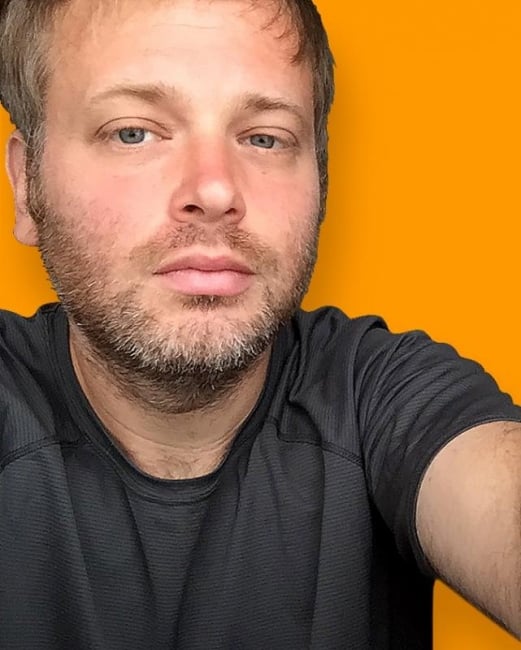You have /5 articles left.
Sign up for a free account or log in.

Matthew Belanger
Courtesy of Matthew Belanger
Matthew Belanger filed suit in U.S. federal court against New York University and NYU Shanghai earlier this year, alleging discrimination under the Americans With Disabilities Act and Title VII of the Civil Rights Act, among other federal and New York State laws.
Belanger, who alleges he was compelled to accept a demotion and illegally discriminated against on the basis of disability, sex, national origin and race, holds titles as an assistant arts professor at NYU Shanghai and a cross-appointment as Global Network Assistant Arts Professor at NYU.
But while Belanger has titles at both NYU and NYU Shanghai, both entities argue he has no right to sue them in U.S. courts.
NYU argues that Belanger was hired to work at, and signed an employment contract with, NYU Shanghai, not NYU, and that any disputes are subject to Chinese laws and dispute-resolution mechanisms.
Meanwhile, NYU Shanghai has asserted that it is neither a U.S. employer nor a foreign entity controlled by a U.S. employer, and it is therefore not covered under the ADA and Title VII’s extraterritorial provisions.
Indeed, NYU Shanghai went to great lengths, in a document filed last year with the U.S. Equal Employment Opportunity Commission about Belanger’s claims, to argue that NYU Shanghai is not controlled by NYU and therefore not covered by U.S. employment laws. NYU Shanghai said this despite the fact that its vice chancellor, Jeffrey S. Lehman, told a congressional committee in 2015 that NYU agreed to help establish NYU Shanghai, a Sino-U.S. joint venture university, on the conditions that NYU “would have absolute control over the school’s curriculum, faculty, teaching style, and operations, and that it would receive an ironclad guarantee that it could operate the school according to the fundamental principles of academic freedom.”
NYU Shanghai’s Faculty Manual also describes NYU Shanghai as an "academic unit" of NYU.
However, in the document it submitted to the EEOC, NYU Shanghai argued that it is not controlled by NYU and -- furthermore -- that it cannot be, as Chinese law “prohibits a foreign entity from having control of a Chinese academic institution.”
NYU Shanghai argued that Chinese laws and policies “state that foreign investment in the higher education sector is limited to Sino-foreign jointly run schools and programs (i.e., programs jointly established by a Chinese party and a foreign party), over which the Chinese party must have control. This includes the requirement that the Chancellor must be a Chinese citizen, and that the board members appointed by the Chinese party must be no less than half of the total board.”
NYU Shanghai also asserted that Chinese laws and policies "provide that Sino-foreign cooperation educational institutions must be less than 50 percent funded by foreign entities. NYU’s lack of control over NYU Shanghai in this regard is analogous to that of a minority shareholder."
NYU Shanghai further argued that the two campuses do not share centralized control of labor relations or common management. Although the institution acknowledged that “a number” of NYU Shanghai administrators and faculty, including Lehman, had been seconded, or reassigned, to NYU Shanghai, it argued that those individuals work only on behalf of NYU Shanghai during the periods of their secondments.
In short, NYU Shanghai argued that the two institutions operate as independent entities. “NYU Shanghai contracts with NYU and pays NYU service fees for a range of professional and administrative support services … but the ultimate authority and decision-making for hiring, execution of contracts, licensing and the like for NYU Shanghai rests with that institution, not NYU,” NYU Shanghai said in the EEOC document. “As discussed above, PRC [People’s Republic of China] law makes it impossible to do otherwise.”
As for Belanger himself, NYU Shanghai describes his title as a Global Network Assistant Arts Professor at NYU as “just an honorific title. The title simply reflected his involvement in visiting different campuses for short periods of time to participate in academic programs; his only job was as an Assistant Arts Professor at NYU Shanghai, and at all times Professor Belanger was compensated only by NYU Shanghai.”
John Beckman, a spokesman for NYU, said, “Professor Belanger’s case against NYU is entirely without merit.”
“NYU Shanghai is both a degree-granting campus of NYU and a separately incorporated ‘Sino-American joint university’ founded by NYU and East China Normal University (ECNU),” Beckman said. “That legal structure is fully consistent with NYU’s conditions for participating and the guarantee NYU received from its partners at the founding that NYU Shanghai would be operated in accordance with the fundamental principles of academic freedom -- all of which have been honored since its launch in 2012 and that continues to be honored.”
“They’re basically trying to limit the liability of the mother ship for the actions of the branch campus,” said Belanger.
Belanger says in court documents that he was born with talipes equinovarus, commonly known as clubfoot, which has been a source of chronic pain, and he has experienced regular episodes of kidney stones since about 2006. He also says he suffered from lumbar disk herniation while traveling to work in February 2017, and he was diagnosed with anxiety disorder in 2018. He alleged in his suit that after accusing administrators of discrimination he faced retaliation and harassment.
Belanger’s lawsuit, filed in U.S. District Court for the Southern District of New York in February, asserts that he negotiated his first three employment contracts directly with the senior vice provost at NYU and says that “language on NYUSH’s faculty recruitment website at the time of Belanger’s hire, and for some time thereafter, suggested that faculty of NYUSH were also faculty of NYU.” NYU denies the latter assertion, saying in its response to the complaint that NYU denies that Belanger was ever an NYU employee.
Belanger’s suit against NYU is proceeding, but he said he has not yet been able to serve NYU Shanghai yet with formal notice of intent to file suit.
He said NYU has sent mixed messages about its relationship with NYU Shanghai.
“If I was a parent sending my student to a school in any foreign country and I knew that mother ship, as it were, was sending out these confused messages -- this is part of NYU, your child is going to get full uncompromising NYU experience with full academic freedom -- and then they’re sending out other messages that said, well, if we come down to a legal matter, we’re going to throw our hands up and say we’re not responsible -- that would worry me as a parent for sure, and it would worry me as a student,” Belanger said in an interview.
The case raises questions of about legal protections for employees at international campuses established by U.S. universities, which are typically founded with strong promises that the universities will abide by U.S. academic norms and policies around academic freedom and nondiscrimination.
“Whether or not the law applies, that’s a question for the court,” said Jason Lane, an expert on international branch campuses and dean of Miami University of Ohio’s College of Education, Health and Society. “Institution leaders should think about what their values are: who are we as an institution, what are our ethics and values, and how are they applied to our employees regardless of where they are.”
Lane added that a lot of thought goes into the organizational and legal structures governing branch campuses, in many cases with a focus on how to protect the home campus from what might occur overseas.
“Interestingly, this is now being used as a way to protect the foreign campus from protection and laws in the home country,” he said.
NYU Shanghai said in the EEOC’s document it has “gone above and beyond in accommodating Professor Belanger -- providing him with many more months of paid medical leave than NYU Shanghai policy provides.”
Belanger noted the irony that the office charged with reviewing complaints of discrimination at NYU Shanghai and his requests for medical accommodations is an NYU (not NYU Shanghai) office, the NYU Office of Equal Opportunity.
NYU Shanghai said in its EEOC filing last year that the availability of the OEO to both NYU and NYU Shanghai is "not an indicator of integrated employer status."
“I just feel trapped in this situation where an entity that has articulated that they’re not my employer keeps insisting that they be involved in aspects of my employment,” Belanger said. “Whatever their agreement is or isn’t, it’s been handled horribly from my perspective and in bad faith, and the consequences for me have been very destructive for me and my health.”




